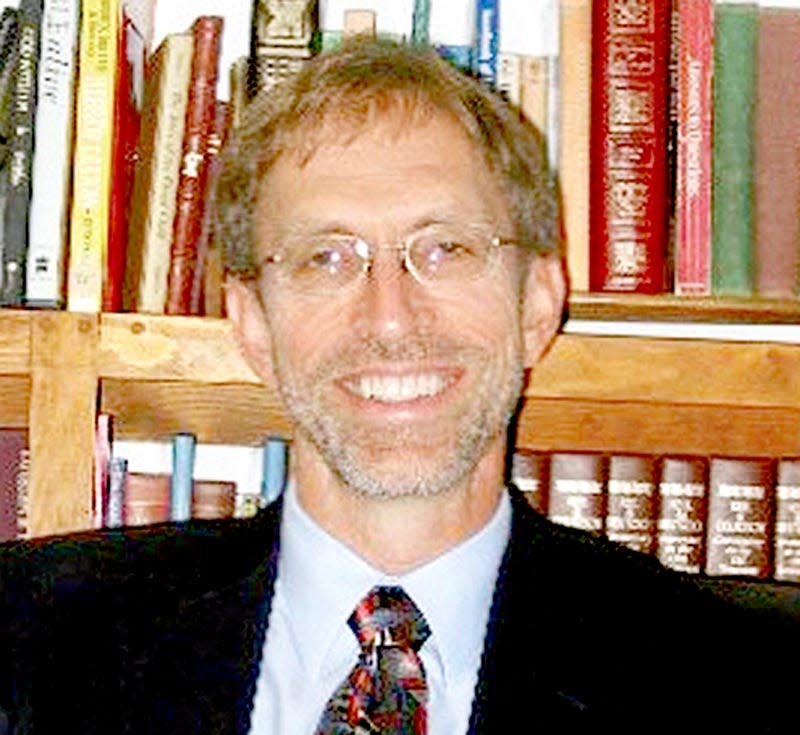The key to knowing oneself
- Oops!Something went wrong.Please try again later.
In one of the Bible’s best-known Psalms, the poet asks God a question that remains, even at our current stage in human development, unanswerable. “What is mankind that you are mindful of them, human beings that you care for them?”
The biblical writer cannot understand why God is interested in humans. Indeed, God goes beyond showing interest; he positively cares for them. In our era of self-worship, this seems an odd question. Why would God not care for humans, who are so intelligent, noble, and good?
That God should be interested in us has not always appeared self-evident. The ancient Greeks called the gods apathetic; they did not care about humans. In still older cultures, it was understood that the gods only created humans to be drudges, slaves to do their work for them.
The psalmist presents a much higher view of humans, which he has come to through an exalted view of God. Human achievements did not convince him of humanity’s extraordinary worth; God’s interest in, and care for, people did. He realized that humanity must be great, but he could not for the life of him understand why. How, he wondered, can God treat bunglers like us as if we matter.
It is worth noting that his question, “What is mankind?” went unanswered. Only God knows what humans are and he is not telling … yet. There may be a reason for that. Christians of the past said that God has hidden humanity’s greatness from it to save us from vanity. The implication is that humanity does not know itself; we don’t know who we are.
In my final days in high school, an English teacher divided the class into groups and required us to answer two questions: “Do you know who you are?” and “What are you going to do?” Afraid of looking foolish, I answered: “I know who I am and what I am going to do.” It is apparent now that I knew neither then. I did not have a clue.
Self-ignorance is not restricted to teenagers. It persists into adulthood and extends unto death. It is not limited to the naïve and the foolish but encompasses the experienced and the wise as well.
This is corroborated in the Scriptures. John the Baptist was approached by a cadre of religious leaders who were trying to gauge the purpose and orthodoxy of his ministry. They wanted to figure out what he was all about, so they asked him a series of pointed questions: “Are you the Messiah? Are you the prophet? Are you Elijah?” John strongly denied that he was any of these.
Nevertheless, sometime after John’s arrest and execution, Jesus told his disciples that John was the Elijah that prophetic tradition was expecting. Scripture records Jesus explaining, “Elijah has already come…” and adds, “Then the disciples understood that he was talking to them about John the Baptist.”
The disciples understood, but John never did. If John – the man Jesus once praised by saying, “Of all who have ever lived, none is greater than John” – did not know himself, what hope is there for the rest of us?
What we do not know about ourselves always exceeds what we do know. Both the depths of human brokenness and the heights of human destiny are beyond our ken. Fortunately, human greatness does not lie in knowing ourselves, but in our capacity to know the Creator and be renewed in his image. In other words, our greatness is not dependent on our achievements – what we have done – but on our potential – what we shall be. And our potential depends on God.
Lack of knowledge leads to problems. Not knowing the train schedule, but thinking we do, will lead to one kind of trouble. Not knowing the disposition of a stray dog will lead to another. Not knowing oneself leads to even greater problems, though none are insurmountable. But not knowing God is simply ruinous.
It is ironic. The path of self-discovery begins by looking up, not by looking in. The key to knowing oneself is knowing God.
Shayne Looper is the pastor of Lockwood Community Church in Branch County. Read more at shaynelooper.com.

This article originally appeared on Sturgis Journal: Opinion

